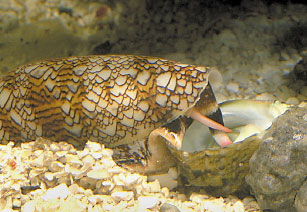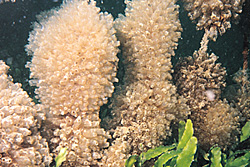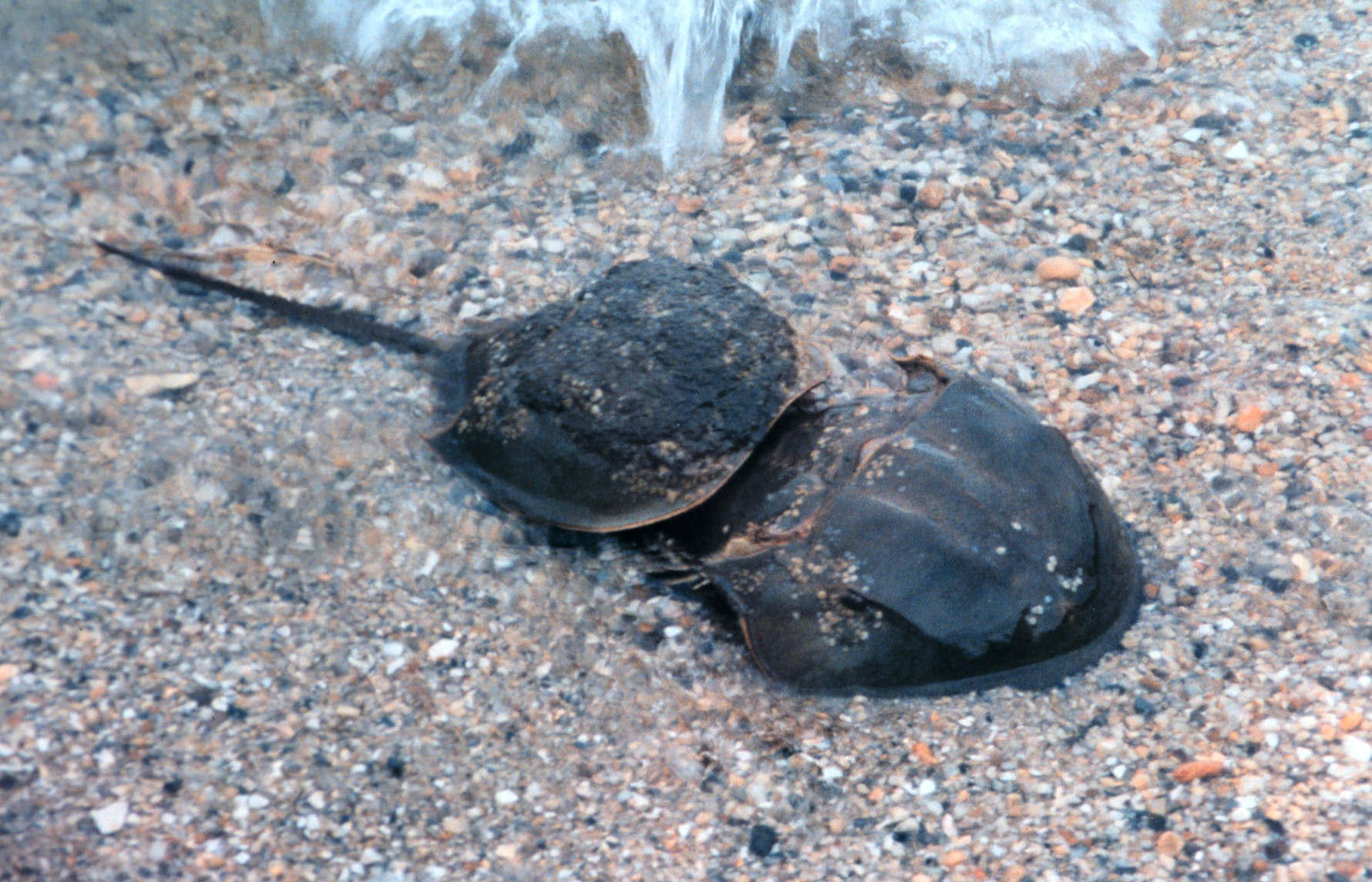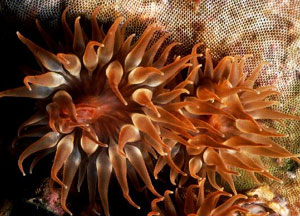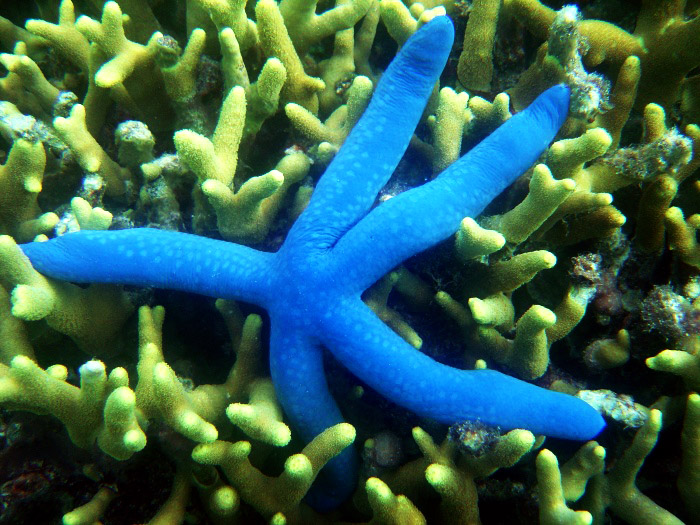Underwater pharmacy
Looking to the oceans for the next generation of medicine
Over 500 species of cone snails exist, and each species produces many different venoms to kill their prey. While these venoms are usually not poisonous to humans, they do have potential as pain relievers for patients with cancer or chronic pain. Zinconotide, a drug produced from the venom from one cone snail, Conus magus, works by blocking the neurons that transmit pain throughout the body. Studies have shown the drug to be up to 1000 times more powerful than morphine, but unlike morphine or other sedatives, zinconotide allows the rest of the nervous system to operate normally.
Natural chemicals from the deep water sponge Discodermia dissoluta are currently being tested to treat pancreatic cancer. All cells replicate by dividing into two new cells with the help of rod-like structures called microtubules, which then break down after the cell divides. The drug from discodermia, called discodermolide, prevents the microtubules from breaking down inside cancer cells, effectively overcrowding the cells and preventing them from dividing further and spreading throughout the body.
Sea squirts are simple animals that grow on the sea floor and feed by filtering ocean water through tiny sacs that contain chemicals extremely affective against breast, ovarian and prostate cancer. It takes about 95,000 pounds of sea squirts to make just 3 ounces of the drug. However, the drug is so powerful that only 0.05 ounces is enough to treat 100 patients. Sea squirts also have regenerative abilities that may provide insight into the regenerative potential of cells and tissue in human organs.
While human blood gets its red color from the iron-rich protein hemoglobin, horseshoe crabs have a protein called hemocyanin, which contains copper and turns the blood blue when it is exposed to oxygen. Horseshoe blood also contains cells called amebocytes, which release a powerful clotting agent when they come in contact with even the smallest toxin. Scientists use the blood to detect impurities in food or drugs.
These tiny warm-water animals grow in coral-like colonies on any hard surface in marine environments. Many boat owners try to prevent them from growing, but the species Bugula neritina harbors a bacteria that has shown promise as a cancer treatment as well as a memory enhancer for patients with Alzheimer’s. In laboratory settings, the chemicals found in bryozoans worked well with existing cancer drugs against lung, prostate and lymphoma tumor cells, although human trials have shown less success.

